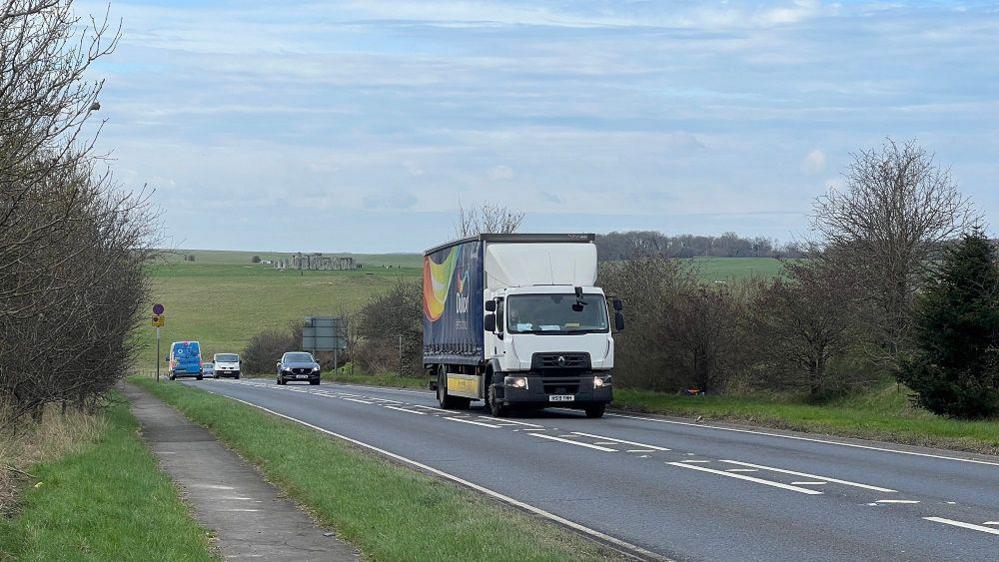Stonehenge heritage decision delayed for two years
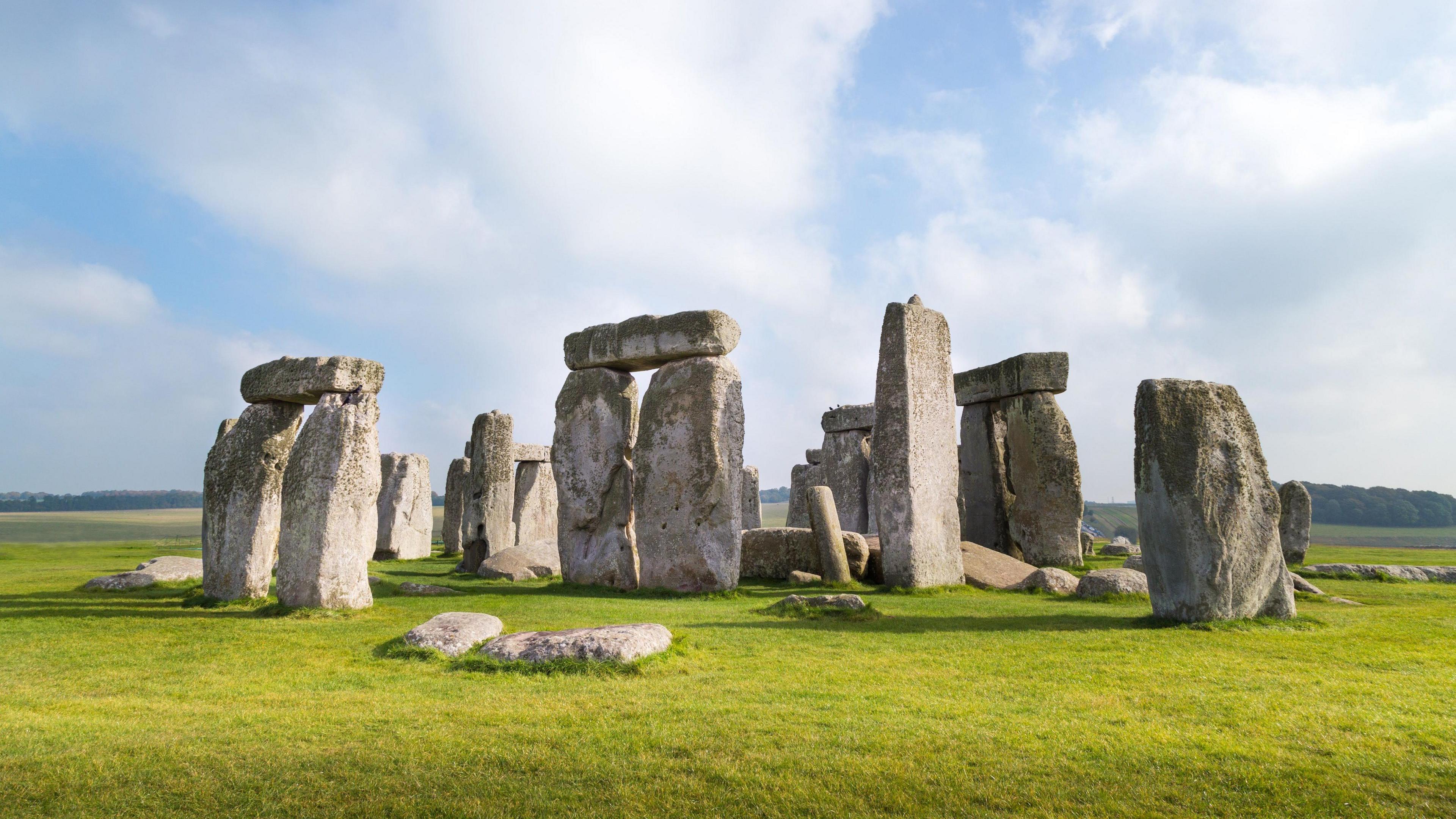
The World Heritage Committee discussed the site at a meeting in New Delhi
- Published
A decision on whether to add Stonehenge to Unesco's World Heritage in Danger list has been delayed by two years.
Last month the World Heritage Committee (WHC) published a draft decision to add the ancient Wiltshire monument to the list, which supports threatened sites.
Proposals to build a new tunnel close to the monument have sparked lengthy legal battles over concerns it will destroy the nearby landscape and undiscovered archaeological artefacts.
But at a meeting in New Delhi on Wednesday the committee deferred a decision until July 2026.
The committee voted for an amendment to the draft decision, which said the impacts of the tunnel development do not constitute including the monument on the list.
The amendment, put forward by the Kenya delegation, said Britain’s plans to mitigate the effect the tunnel would have on the site and the surrounding landscape are sufficient.
'Highly damaging'
But campaign group Stonehenge Alliance said it was “shocked” by the vote, describing the amendment as “highly damaging and inaccurate”.
The group called on the new Labour government to distance itself from what it called “political manoeuvrings” at the New Delhi session.
John Adams, chairman of the alliance, said: “This is a dark day for Stonehenge and a hollow victory for the UK government as this decision won’t stop the harm to the World Heritage Site.
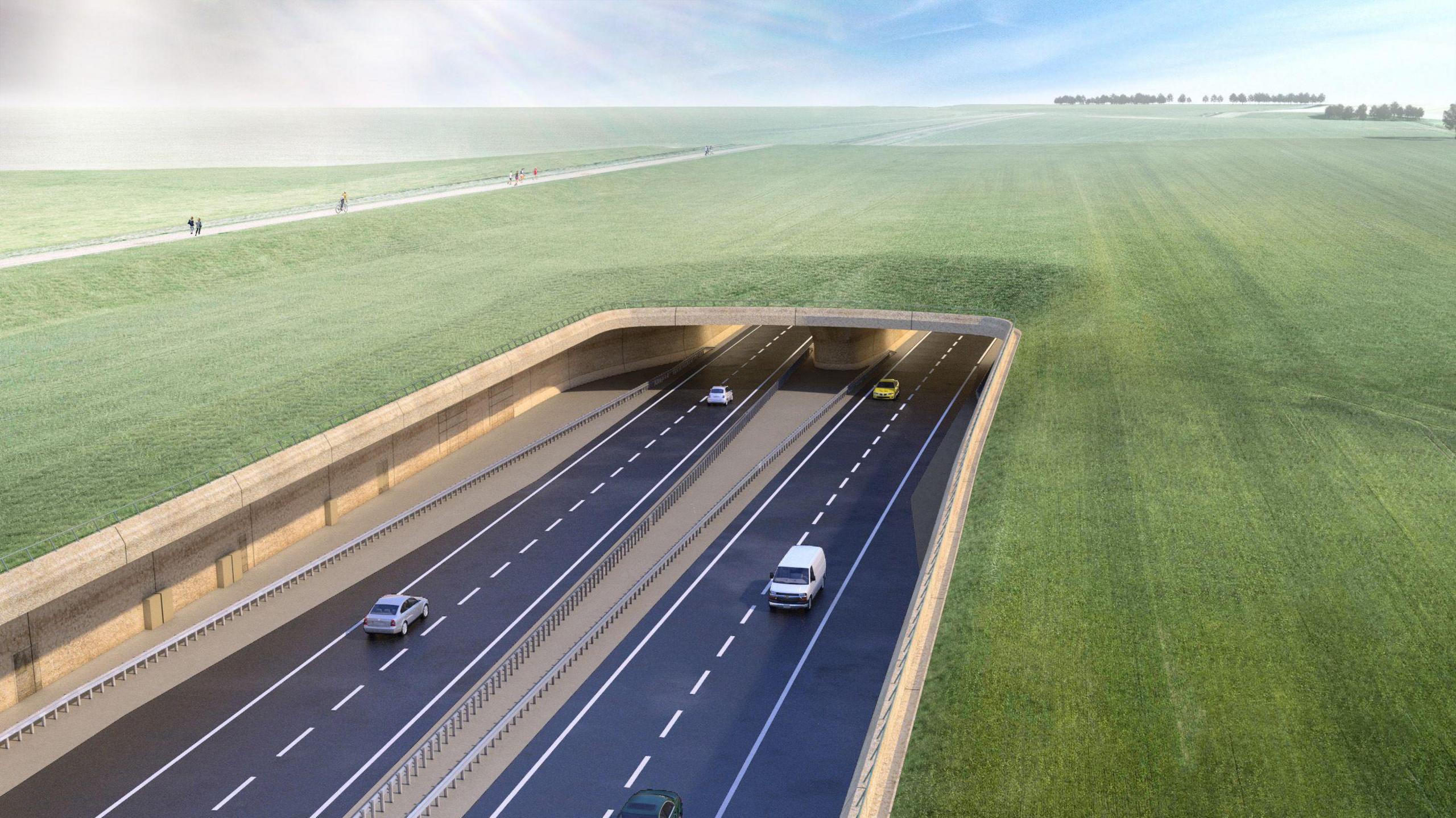
The project has been the subject of a lengthy legal battle
A government spokesperson said they cared "passionately about the UK's heritage", describing Stonehenge as "one of our oldest and most celebrated sites".
“We welcome the committee’s decision not to place Stonehenge on the list of World Heritage in Danger," they added.
Stonehenge was built on the flat lands of Salisbury Plain in southern England in stages, starting 5,000 years ago, with the stone circle erected in about 2,500 BC.
The site, with Avebury, was declared by Unesco to be a world heritage site of outstanding universal value in 1986.
Save Stonehenge World Heritage Site lost a High Court challenge in February over the then government’s support for the development.
The A303 is a congestion hotspot, with drivers heading to and from the South West during peak holiday periods often stuck in long queues on the single-carriageway stretch near the stones.
National Highways said the plan for the tunnel would remove the sight and sound of traffic passing the site and cut journey times.
Get in touch
Tell us which stories we should cover in Wiltshire
Follow BBC Wiltshire on Facebook, external, X, external and Instagram, external. Send your story ideas to us on email or via WhatsApp on 0800 313 4630.
- Published25 June 2024
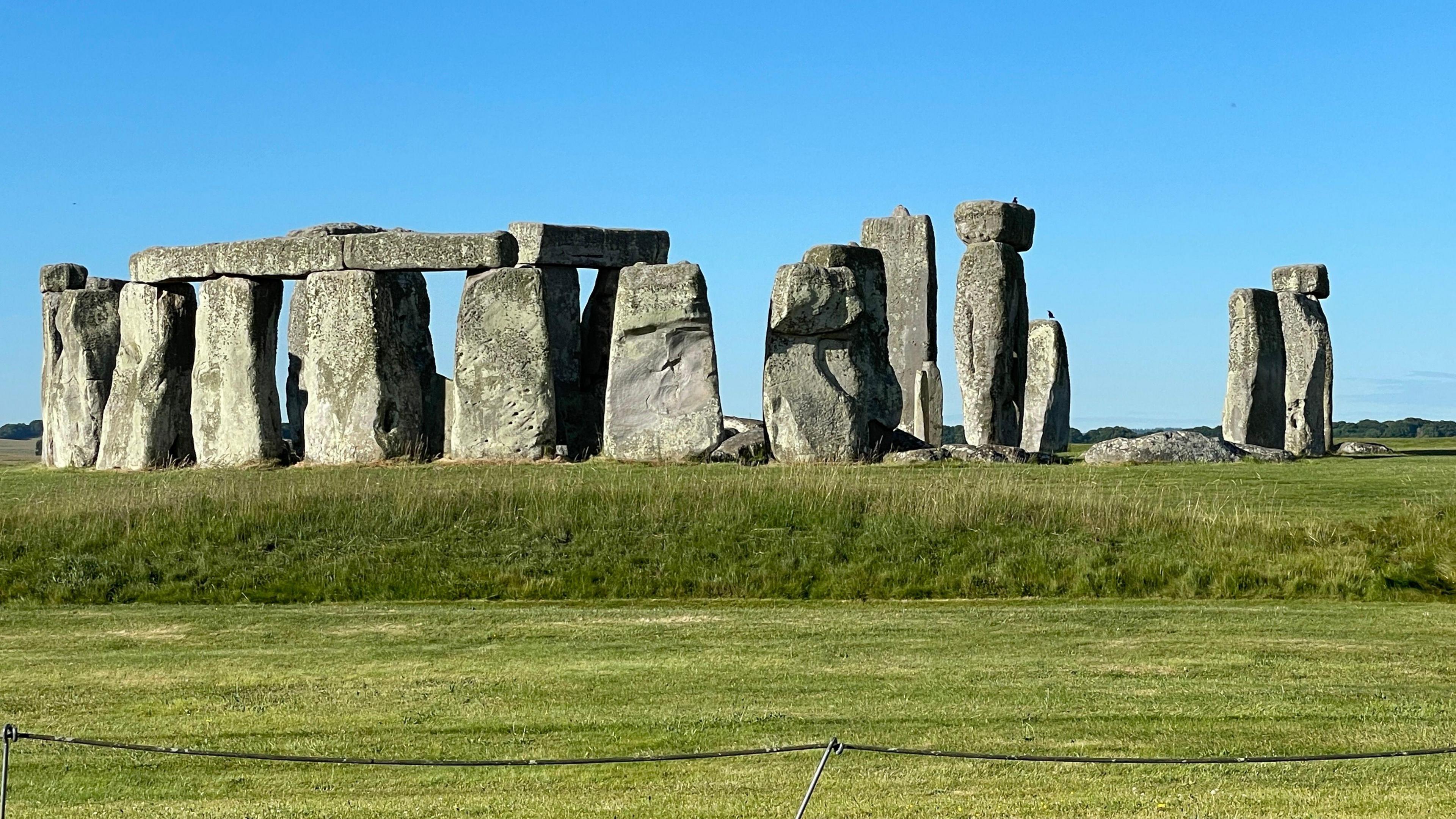
- Published24 June 2024
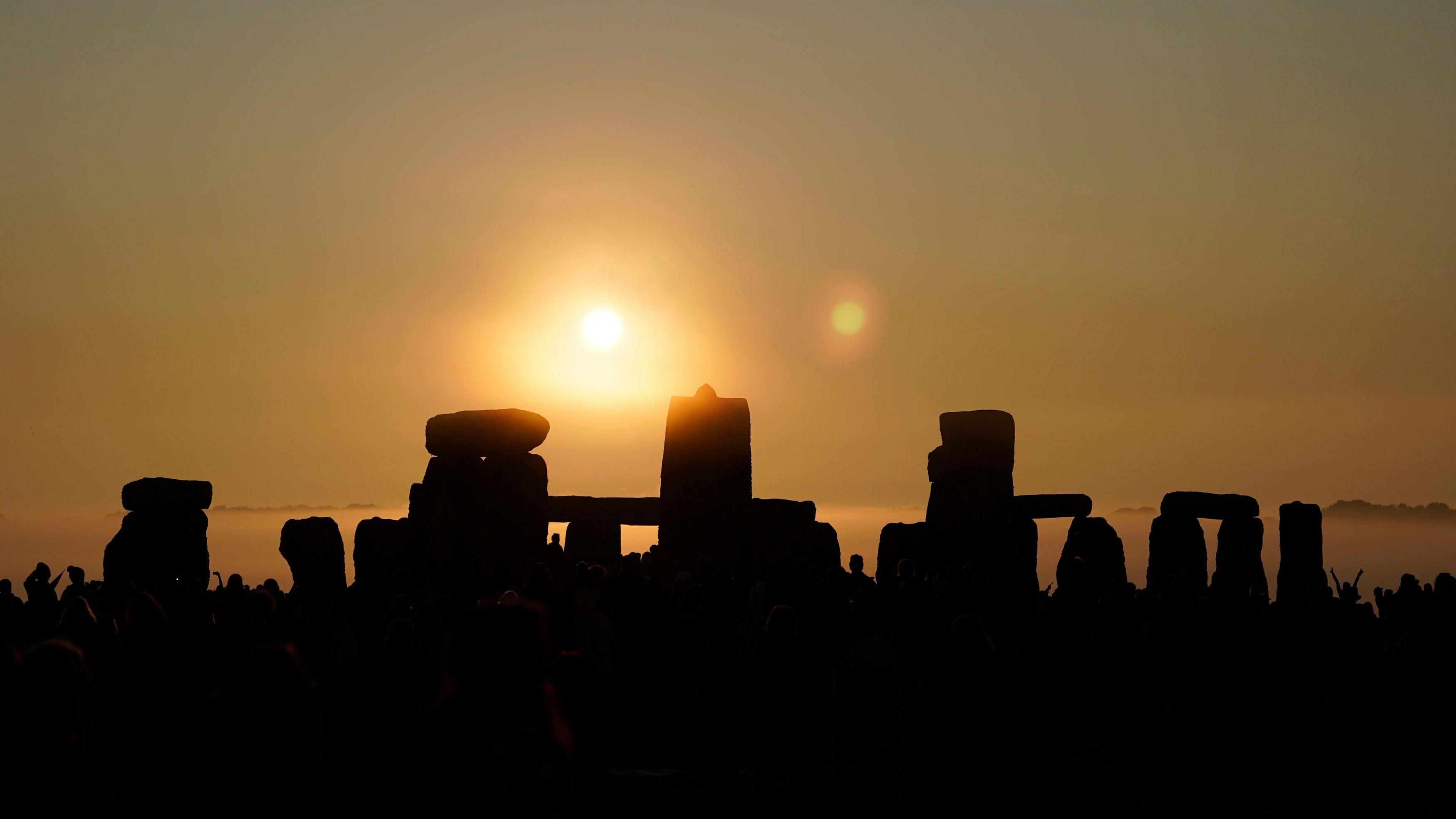
- Published4 March 2024
